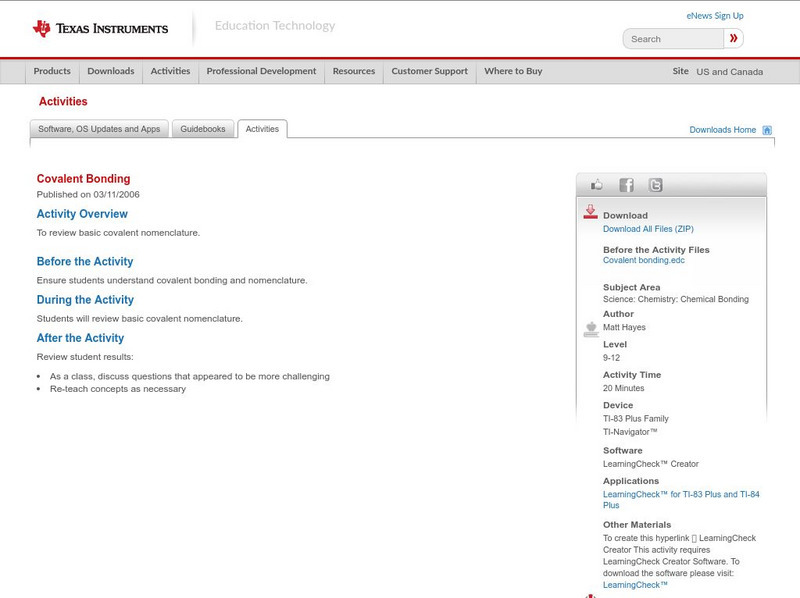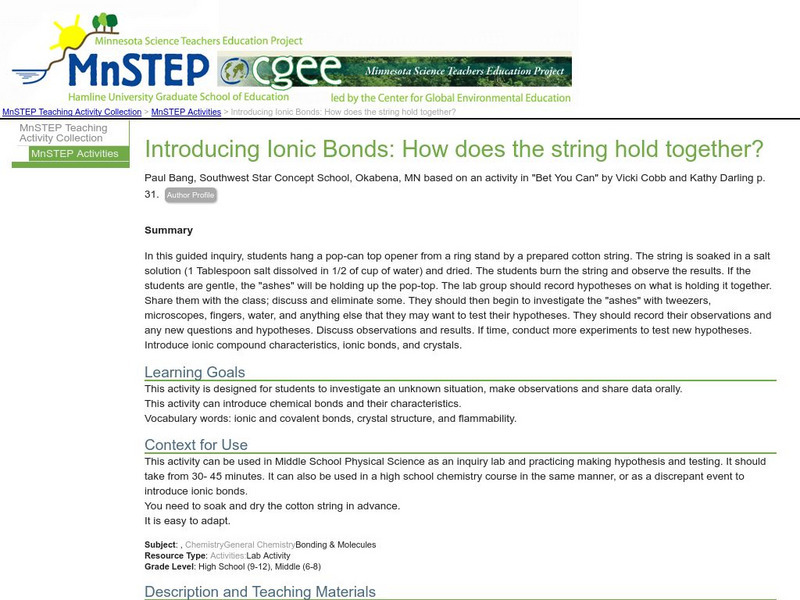Georgia Department of Education
Ga Virtual Learning: Physical Science: Bonding and Chemical Reactions
Through informational text, interactive puzzles, and review questions, students differentiate ionic and covalent bonds and identify the properties of each. They also use oxidation numbers to predict formulas of ionic compounds, name...
University of Colorado
University of Colorado: Ph Et Interactive Simulations: Covalent Bonds
Explore tunneling splitting in double well potentials. This classic problem describes many physical systems, including covalent bonds, Josephson junctions, and two-state systems such as spin 1/2 particles and ammonia molecules. Java...
Simon Fraser University
Chem1 Virtual Textbook: The Shared Electron Covalent Bond
The General Chemistry Virtual Textbook, or Chem 1, is broken into several sections covering various aspects of topics related to chemistry. This section deals with the shared-electron covalent bond and related topics such as the octet...
Simon Fraser University
Chem1 Virtual Textbook: Chemical Bonds: Covalent or Ionic or What?
Use this resource to understand polar covalence in ion-derived solids.
CK-12 Foundation
Ck 12: Organic Reactions
[Free Registration/Login may be required to access all resource tools.] Students distinguish between substitution reactions and addition reactions, and relate the concepts of oxidation and reduction to organic reactions.
CK-12 Foundation
Ck 12: Lewis Electron Dot Structures
[Free Registration/Login may be required to access all resource tools.] Students will use their knowledge of covalent bonds, and apply that to drawing Lewis dot structures to represent compounds.
CK-12 Foundation
Ck 12: Flex Book Textbooks: Chemistry Second Edition
[Free Registration/Login may be required to access all resource tools.] A complete, web-based, multi-media textbook covering a wide variety of Chemistry concepts.
Khan Academy
Khan Academy: Molecules and Compounds
Article defines and explains compounds which are either ionic or covalent and molecules which are the simplest unit of a covalent compound. Molecules can be represented in many different ways.
OpenStax
Open Stax: Chemical Bonds
Learn here about chemical bonds, a weak or strong electrical attraction that holds atoms in the same vicinity.
Chem4kids
Chem4 Kids: Ions
Here at Chem4Kids you can learn all about ions. Content explores what an ion is, its various characteristics, electrovalence, and more.
Vision Learning
Visionlearning: Chemistry: The Nature of the Chemical Bond
This site talks about ionic, polar covalent, and non-polar covalent bonding.
Chem4kids
Chem4 Kids: Atoms
This site provides a detailed overview of atoms. Content explores an atom's structure, as well as what ions are, how atoms bond, what compounds are (including how to name compounds), and what isotopes are.
Texas Education Agency
Texas Gateway: Ionic and Covalent Bonding
In this tutorial, students learn about ionic and covalent bonds and predict which elements will form which type of bond. Includes interactive exercises as well as videos.
Chiral Publishing
Chiral Publishing: An Introduction to Chemistry: Molecular Structure [Pdf]
The Molecular Structure chapter from "An Introduction to Chemistry" textbook discusses the formation of covalent bonds, drawing Lewis dot structures, and the resonance and molecular geometry of molecules. Many pictures and examples are...
American Chemical Society
Middle School Chemistry: Energy Levels, Electrons, and Covalent Bonding
Students discover the concept that two atoms can attract and form a covalent bond.
CK-12 Foundation
Ck 12: Lewis Electron Dot Structures
[Free Registration/Login may be required to access all resource tools.] The following online tutorial describes how a covalent bond forms, including the energy change involved in the process.Students will be asked to use the octet rule...
PBS
Pbs Learning Media: Covalent Bonding
This interactive activity from ChemThink takes a closer look at a covalent bond: how it is formed and how the sharing of two electrons can keep atoms together.
Utah Education Network
Uen: Conductivity and Bonding
Students will measure the conductivity of several compounds and solutions in order to predict the bond types (ionic or covalent) in the substances tested.
Khan Academy
Khan Academy: Test Prep: Mcat: Chemical Processes: Covalent Bonds: Intramolecular and Intermolecular Forces
Explains what intramolecular and intermolecular forces are and the different types for each. Includes lots of examples.
Khan Academy
Khan Academy: Single and Multiple Covalent Bonds
Explains what covalent bonds are and the difference between them and ionic bonds. Discusses the properties of polar and non-polar covalent bonds, and single and multiple covalent bonds, and gives analogies and examples of how covalent...
University of Southern California
Atomic Bonds
This slide show on atomic bonds contains several slides on electron affinity. Other topics include covalent, Sigma and Pi bonds, and atomic bonding in solids.
University of Arizona
University of Arizona: Bonds Tutorial
A tutorial on covalent bonds and intermolecular forces. A good summary weak forces, including Van der Waals forces and an excellent illustration showing the relative strengths of different forces and bonds.
Texas Instruments
Texas Instruments: Covalent Bonding
This activity helps students review basic covalent nomenclature.
Science Education Resource Center at Carleton College
Serc: Introducing Ionic Bonds: How Does the String Hold Together?
This inquiry activity introduces chemical and ionic bonds and allows students to investigate an unknown situation, make hypotheses, and share data.




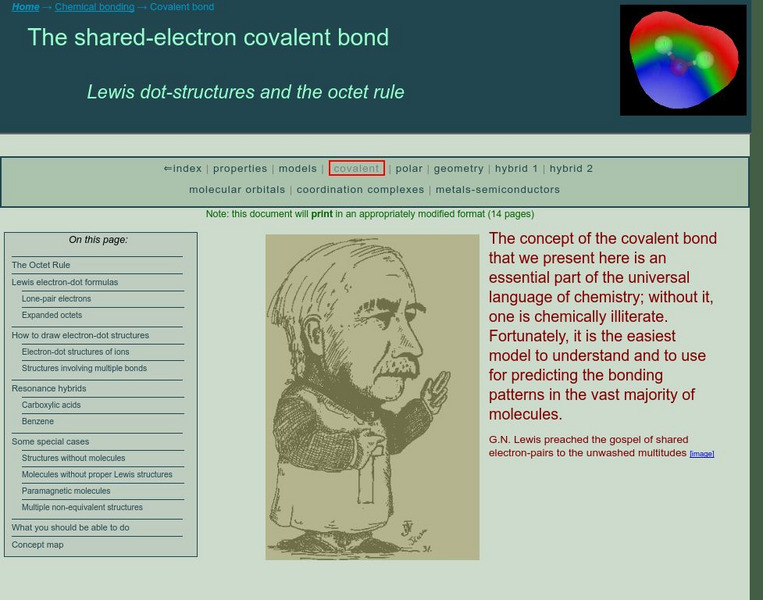


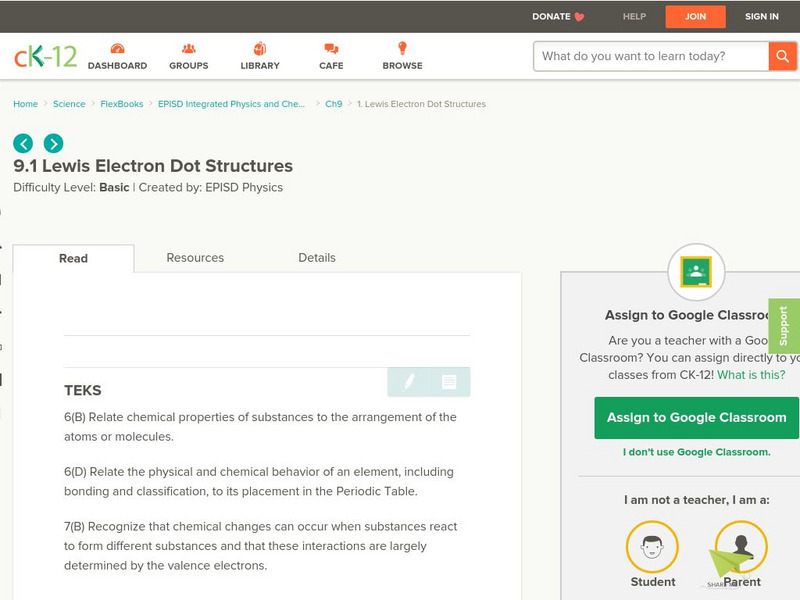

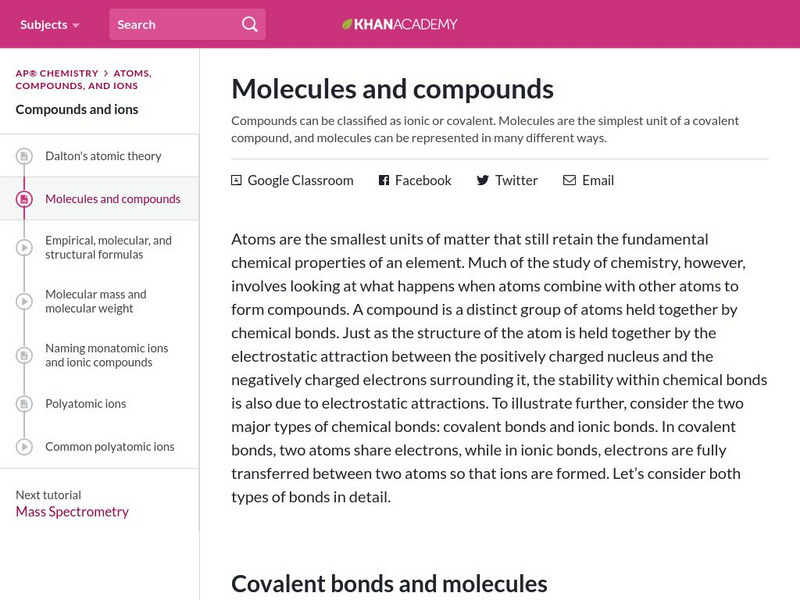
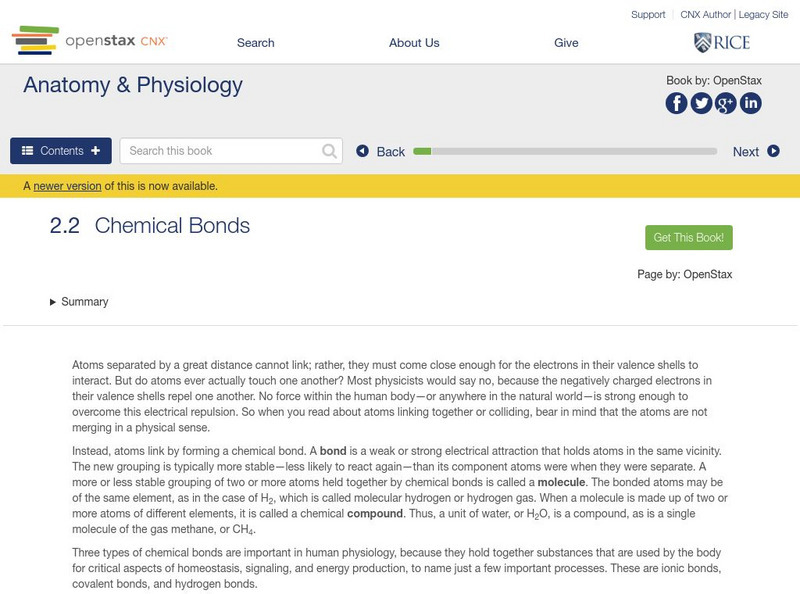
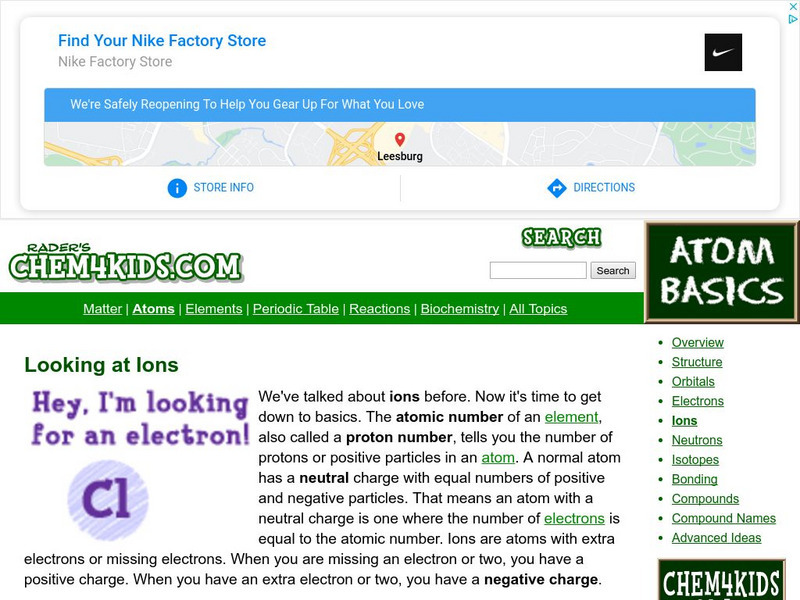
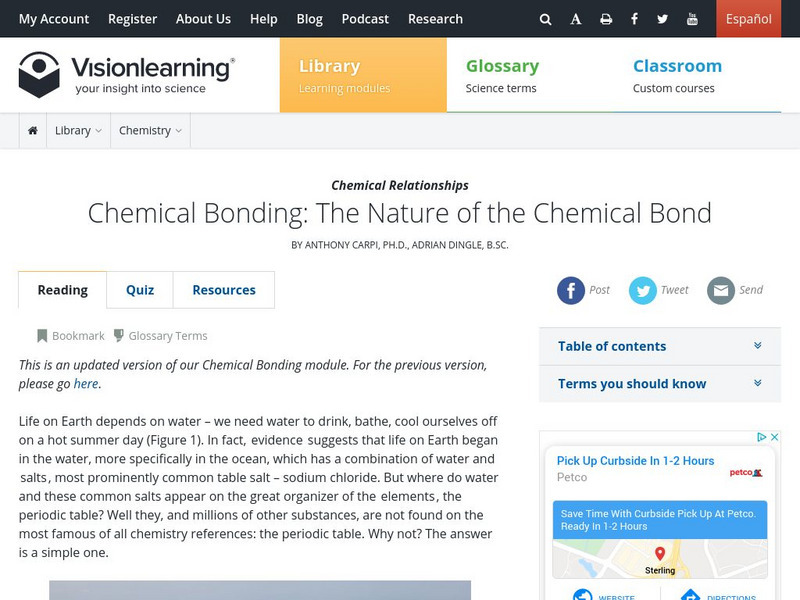
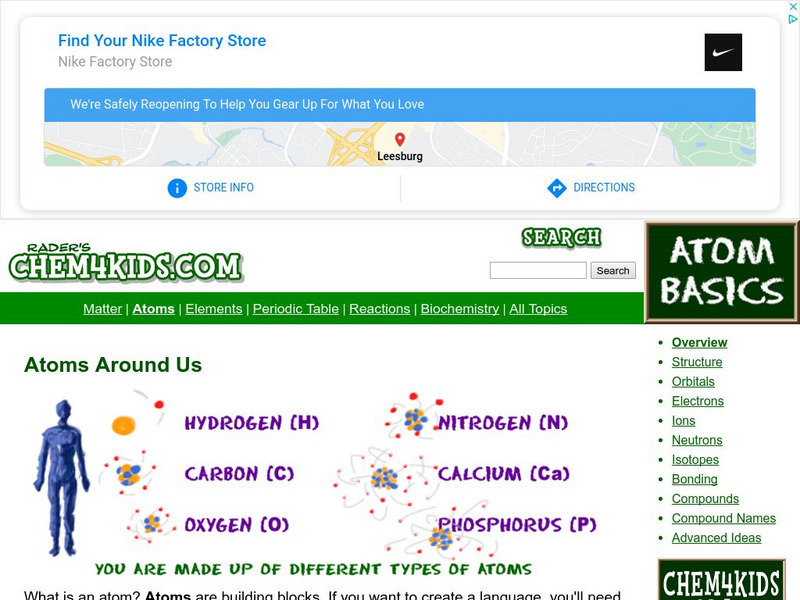

![Chiral Publishing: An Introduction to Chemistry: Molecular Structure [Pdf] eBook Chiral Publishing: An Introduction to Chemistry: Molecular Structure [Pdf] eBook](https://d15y2dacu3jp90.cloudfront.net/images/attachment_defaults/resource/large/FPO-knovation.png)





